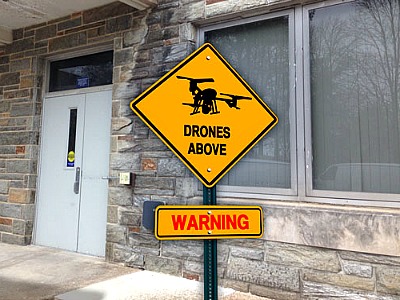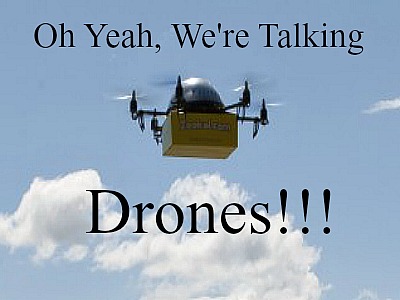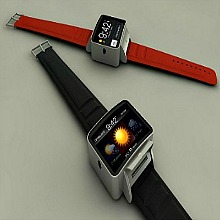 It’s been a long day, you hit the door with groceries to put away, dinner to fix, and laundry to start – except that you forgot to buy detergent and you really don’t want to go back to the store. Now imagine a world where you wouldn’t have to, where you could go online, order what you need, and it would be delivered right to your doorstep, via drone, all before your dinner was even done.
It’s been a long day, you hit the door with groceries to put away, dinner to fix, and laundry to start – except that you forgot to buy detergent and you really don’t want to go back to the store. Now imagine a world where you wouldn’t have to, where you could go online, order what you need, and it would be delivered right to your doorstep, via drone, all before your dinner was even done.
This is the reality that Amazon is hoping to create with their proposed Amazon Prime Air, a system that would use unmanned aerial-vehicles, or drones, to deliver customer purchases as quickly as possible. And that reality might be coming to fruition sooner than everyone expected – on April 8th, Amazon’s request to test drones in the US was finally approved by the FAA.
Amazon had previously made a request last July for test flights and it sat in limbo for six months before meeting approval. At that point Amazon had already been making test flights overseas and the UAV technology in the initial proposal was obsolete, so a second updated request was made this past spring and quickly approved. The FAA currently has a new, speedier method for reviewing requests in place which allows the whole process to move much quicker than before, especially if a similar request has already been made and approved.
Now Amazon can move full-steam ahead with their vision for Prime Air. The current models they have in development would travel no more than 10 miles from an Amazon warehouse, flying below 400 feet and traveling over 50 mph. Each UAV would have up to a 5 lb payload which may not seem like much, but over 86% of items sold on Amazon fall into this category.
This past December Amazon rolled out their Prime Now bike delivery service in select cities which offers one-hour delivery for only $7.99 or free two-hour delivery. With Prime Air, Amazon is planning to have world-wide delivery in 30 minutes or less and they are working towards a $1 delivery fee.
 New York-based ARK Invest conducted a cost/analysis study of Amazon Prime Air’s start up costs, basing their findings on existing technology and prices. According to the study Amazon would have an upfront cost of $100 million to buy the tens of thousands of drones they would need for the expected 400 million deliveries each year.
New York-based ARK Invest conducted a cost/analysis study of Amazon Prime Air’s start up costs, basing their findings on existing technology and prices. According to the study Amazon would have an upfront cost of $100 million to buy the tens of thousands of drones they would need for the expected 400 million deliveries each year.
In addition there would be another $300 million to deploy the UAVs and included in that cost would be the thousands of operators that would need to be hired, each capable of flying multiple drones simultaneously while still ensuring safe takeoffs and landings.
ARK Invest analyst and report author Tasha Keeney remarked, “The breakthrough is the value that drones offer customers, in terms of the cost and the convenience.”
On the same day that the FAA approved Amazon’s request, they also gave the o.k. to dozens of other companies, mainly in the film/TV industry. It’s not just those in the delivery or entertainment industry that stand to gain from the new drone technology, however. Farmers in unpopulated, rural areas have been deploying UAVs to both rapidly and accurately scan their fields for soil quality, water usage, and to look for pest outbreaks among crops.
An energy company recently used a drone to map a site for a new power plant and discovered unwanted debris, water pooling in areas, and were able to target asbestos in existing buildings for removal, all before the construction crew even stepped foot on the property, saving both time and money and without putting the crews’ health at risk.
The big game changer could be the solar-powered UAV that Facebook has in the works that weighs less than a car, yet has the wingspan of a Boeing 767. This drone, code-named Aquila, will be able to remain in the air for up to three months at a time, thanks to solar-power, and will use lasers to provide internet access to people 60,000 – 90,000 feet below.
According to Facebook Chief Technology Officer Mike Schroepfer, a successful first test flight was conducted and Facebook will continue them this summer with a broader rollout happening over the next several years. In a recent statement Facebook said that the drone will “one day help connect people living in the world’s most remote communities.”






